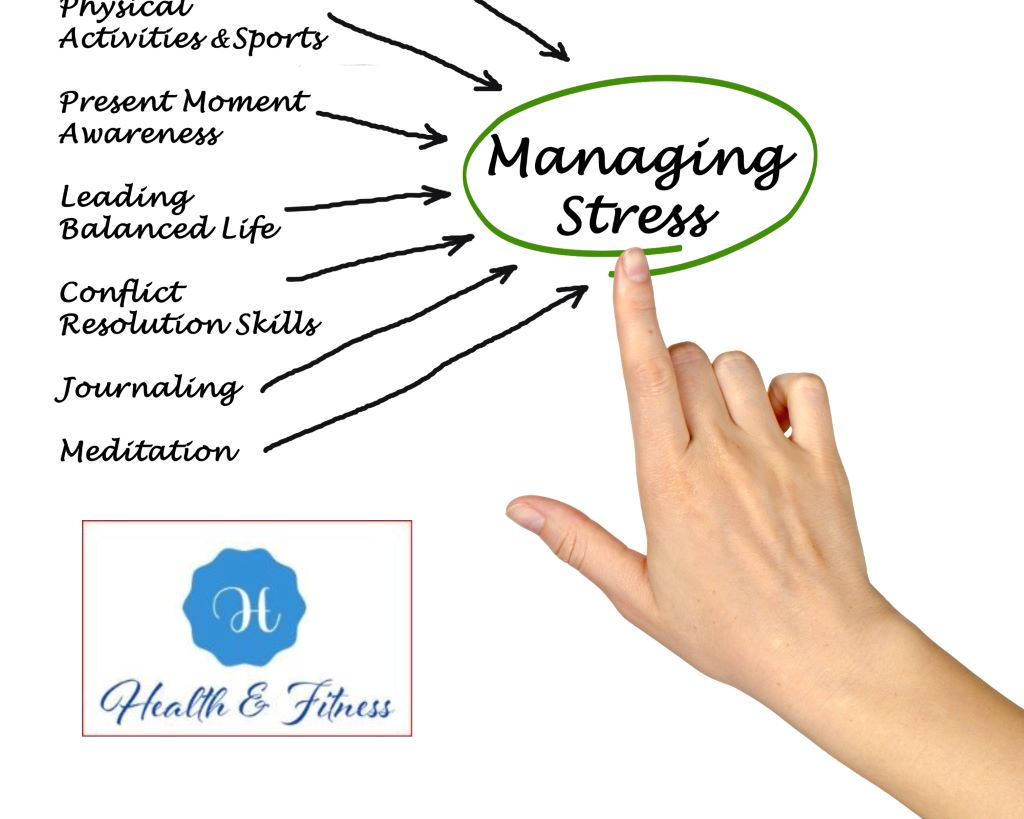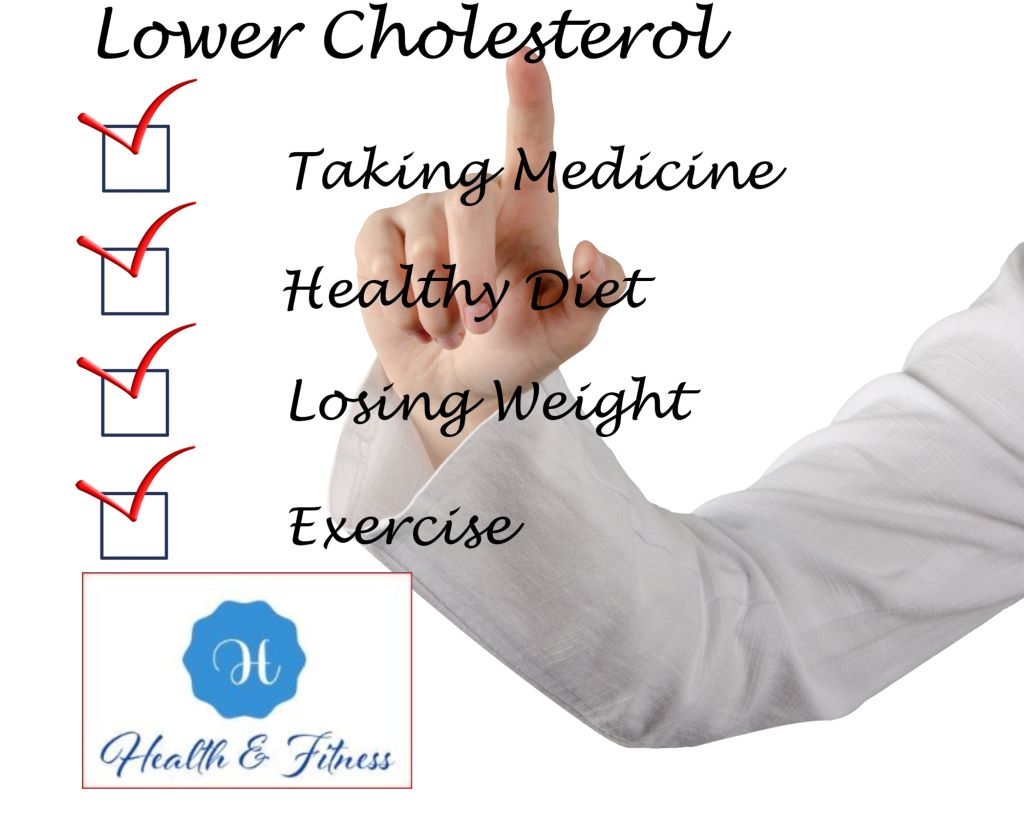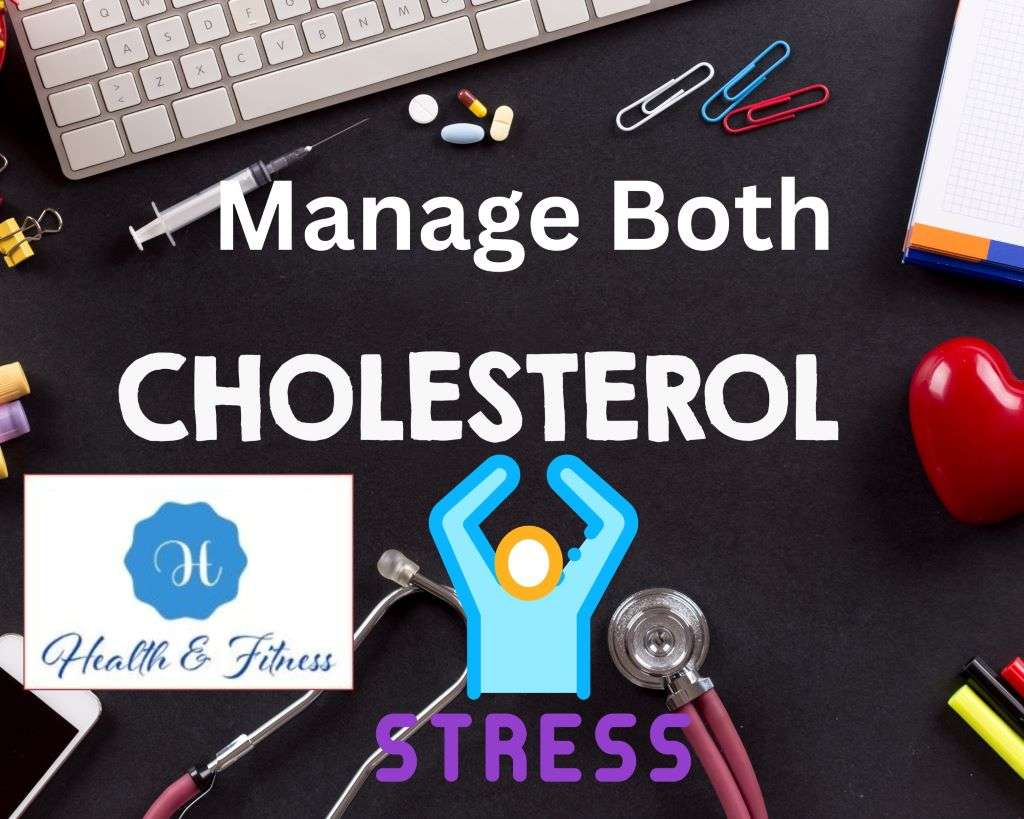Stress and Cholesterol: How to Manage Both
Stress Manage Cholesterol The Surprising Connection and How to Take Control Stress and cholesterol are commonly discussed health issues, but did you know they are also closely connected? Chronic stress can surprisingly impact Triglyceride levels, increasing LDL or “bad” cholesterol levels and contributing to plaque buildup in the arteries. This buildup can increase heart disease, stroke risk, and other health problems. Managing stress and cholesterol levels is essential for overall health, and many strategies exist for taking control. We will explore the surprising connection between stress and cholesterol, the science behind it, and tips for managing both. By understanding the connection between stress and cholesterol and taking steps to manage cholesterol with stress, individuals can improve their overall health and quality of life.
What’s the relationship between stress and cholesterol?
Chronic stress can raise LDL or “bad” cholesterol levels. Stress hormones like cortisol and adrenaline prepare the body for fight-or-flight. This is advantageous in the short term, but persistent stress might overproduce these hormones, raising LDL. Stress can also cause unhealthy habits that raise blood fat. Stress may lead to poor eating, smoking, or drinking. Habits can elevate LDL cholesterol and lower HDL (“good”) cholesterol. Chronic stress can raise LDL cholesterol levels, leading to plaque accumulation in the arteries and heart disease, stroke, and other health issues. There are several ways to manage stress and cholesterol for general health. Managing stress and cholesterol can enhance health and quality of life.
How important it is to take care of both for your overall health
Managing both stress and cholesterol levels is essential for overall health. Persistent stress increases the risk of heart disease, stroke, and other health issues. High LDL or “bad” cholesterol levels can also cause plaque development in the arteries, increasing the risk of heart disease, stroke, and diabetes, increasing the risk of heart disease, stroke, and other health issues. By managing stress levels, individuals can improve mood, reduce anxiety and depression, and improve sleep quality. This can lead to an overall improvement in mental and emotional well-being. Also, managing cholesterol levels can lower their risk of heart disease, stroke, and other health issues.
Making dietary and lifestyle changes, such as reducing saturated and trans fats and incorporating exercise into daily routines, can help manage cholesterol levels. Taking steps to manage both stress and cholesterol levels can lead to an increased quality of life. Lowering stress levels can improve mood, reduce anxiety and depression, and improve sleep quality. Lowering cholesterol levels can improve overall health and reduce the risk of developing health problems.
Overview of Cholesterol and Its Role in the Body

Cholesterol is a waxy substance produced by the liver and is necessary for the body to function correctly. It is a vital component of cell membranes and plays a crucial role in producing hormones, vitamin D, and bile acids.
What are the Types of Cholesterol?
The two main types of cholesterol are low-density lipoprotein (LDL) and high-density lipoprotein (HDL). LDL is often called “bad” cholesterol because it can contribute to plaque buildup in the arteries, contributing to a higher probability of cardiovascular disease and stroke. However, HDL is often called “good” cholesterol because it helps remove LDL from the bloodstream.
How Stress Affects Cholesterol Levels
When the body is under stress, it produces hormones like cortisol and adrenaline. These hormones trigger the liver to produce more glucose, which provides energy to help the body respond to a stressful situation. However, these hormones can also cause an increase in LDL levels, increasing heart disease and other health risks.
The Impact of Chronic Stress on Cholesterol Levels
Chronic stress, which is stress that occurs over an extended period, can have a significant impact on cholesterol levels. The constant production of cortisol and other stress hormones can lead to consistently high LDL cholesterol levels, increasing the risk of heart disease, stroke, and other health problems. Chronic stress can lead to unhealthy behaviors such as overeating, drinking alcohol, and smoking, increasing the risk of developing health problems.
Bad Habits Are Triggered by Stress
Stress harms many individuals. Bad behaviors may damage stress and health. Cortisol and adrenaline trigger our fight-or-flight response. Heart rate, shallow breathing, anxiety, and anger might result. We cope with these symptoms in undesirable ways. Stress-related bad behaviors include overeating, drinking, smoking, and ignoring exercise and self-care. These practices may momentarily ease stress but may worsen it. Overeating causes high blood pressure, diabetes, heart disease, and obesity. Alcohol and drugs momentarily reduce stress but may promote addiction and other health difficulties. Smoking causes lung cancer, heart disease, and stroke. Control Cholesterol. Weight gain, poor sleep, and immune dysfunction may result from neglecting exercise and self-care. To break stress-induced bad behaviors, use healthy coping skills. Mindfulness, exercise, friends, and hobbies may help.
Tips for Managing Stress

|Tips for Managing Stress | stress-manage-cholesterol
1-Recognizing Sources of Stress
The first step in managing stress is to identify the sources of stress in your life. This can include work, relationships, financial difficulties, health problems, etc. Once you have identified the sources of stress, you can begin to take steps to manage them.
2- Strategies for Coping with Stress
There are a variety of strategies for coping with stress that can be effective in reducing stress levels.
-
- Exercise: Regular physical activity, such as walking, running, or yoga, can help reduce stress levels by releasing endorphins, which are natural mood boosters.
- Mindfulness Techniques: Mindfulness meditation, deep breathing exercises, and visualization techniques can help reduce stress and promote relaxation.
- Social Support: Spending time with friends and family, joining a support group, or seeking professional counselling can provide valuable social support that can help reduce stress levels.
4- Seeking Professional Help When Needed
In some cases, managing stress may require professional help. A Stress Manage Cholesterol mental health professional can provide valuable support and guidance for managing stress and developing coping strategies. Also, medication may be necessary in some cases to manage symptoms of anxiety or depression. By incorporating these strategies into daily life, individuals can effectively manage stress levels and improve overall health and well-being. It is essential to recognize that managing stress is an ongoing process and may require adjustments and experimentation to find the most effective strategies for each individual.
Tips to Manage Cholesterol

A-Diet and Lifestyle Changes
Diet and lifestyle changes can effectively manage cholesterol levels and reduce the risk of developing heart disease and other health problems.
1-Reducing Saturated and Trans Fats: Saturated and trans fats can raise LDL levels, so limiting how much of these fats you eat is essential. This can be done by choosing lean proteins, such as chicken and fish, and limiting processed and fast food intake.
2- Eating More Fruits and Vegetables: Fruits and vegetables are high in fiber, which can help reduce LDL levels. Eating various fruits and vegetables can also provide essential vitamins and minerals to improve overall health.
3- Incorporating Exercise into Daily Routine: Regular exercise can help raise the HDL level, which can help remove LDL from the bloodstream. This can be achieved through walking, jogging, swimming, or cycling.
B-Medications to Manage Cholesterol
Sometimes, lifestyle changes may not be enough to manage Triglyceride levels. In these cases, medications may be necessary.
1- Statins:
Stress Manage Cholesterol Medication, known as statins, inhibit hepatic cholesterol synthesis. They are often prescribed to individuals with high LDL levels or a history of heart disease.
2- Other Cholesterol-Lowering Medications:
Various other medications, such as bile acid sequestrants and niacin, can effectively manage fat blood levels. Working with a healthcare professional to determine the most effective treatment plan for managing Triglyceride levels is essential. Also, individuals should continue to make lifestyle changes, such as improving their diet and increasing exercise, even when taking medications.
What Research Shows about the Link Between Stress and Cholesterol Levels
Chronic stress increases the likelihood of elevated triglycerides and related health issues, according to research. Triglyceride, a fatty molecule, helps make hormones and cell membranes. However, arterial plaque from high cholesterol raises the risk of heart disease, stroke, and other health problems. Chronic stress increases LDL synthesis and inflammation, raising the risk of heart disease and other health issues. Stressed people had greater LDL and lower HDL or “good” cholesterol, according to a Journal of the American College of Cardiology research. Stress was linked to heart disease in the research.
“Psychosocial Stress and Cardiovascular Disease Risk: The Role of Physical Activity,” Journal of the American College of Cardiology: https://www.jacc.org/doi/full/10.1016/j.jacc.2017.09.035
Another study published in Psychosomatic Medicine found that individuals who reported higher stress levels had higher levels of triglycerides, another type of fat in the blood that can increase the risk of heart disease.
“The Association Between Chronic Stress and Lipid Abnormalities,” Psychosomatic Medicine: https://journals.lww.com/psychosomaticmedicine/Abstract/2001/05000/The_Association_Between_Chronic_Stress_and_Lipid.5.aspx
Stress increases cortisol and other stress hormones, which may explain the relationship between stress and cholesterol. These hormones raise LDL and lower HDL cholesterol, causing an unfavourable lipid profile. Stress management is vital for good cholesterol levels and preventing heart disease and other health issues, according to a study. Exercise, mindfulness, and professional aid reduce stress and improve health. Stress management and cholesterol management may enhance health and minimize the risk of chronic diseases.
The Benefits of Managing Both
Managing both stress and cholesterol levels can provide many benefits for overall health and well-being.
1-Improved Overall Health
By managing stress and cholesterol levels, individuals may experience improvements in their overall health. This can include improved blood pressure, reduced inflammation, and improved immune function.
2- Heart disease and other health problems are less likely to happen
Stress and cholesterol levels that are too high can make heart disease more likely, such as stroke and other health problems. Individuals can reduce their risk of developing these conditions by effectively managing both.
3-Increased Quality of Life
Chronic stress and high cholesterol levels can negatively affect an individual’s quality of life. By managing both, individuals may experience improved mood, increased energy, and greater overall satisfaction with life. Stress Manage Cholesterol It is essential to recognize that managing stress and Triglyceride levels is an ongoing process that requires effort and commitment. However, the benefits of doing so can be significant and lead to a healthier and happier life. Individuals can take control of their health and well-being by incorporating strategies such as exercise, mindfulness techniques, and healthy diet and lifestyle changes. Also, seeking professional help when needed can be an effective way to manage stress and cholesterol levels.
Conclusion
Stress and LDL levels are surprising but crucial. Stress can lower Blood fat, increasing the risk of significant health problems. Exercise, proper nutrition, mindfulness, and professional guidance can help manage stress and Triglyceride levels. Individuals can enhance their health and quality of life by controlling these factors and making lifestyle changes.
Recommendation
Whole health requires stress and Triglyceride management. By doing so, people can actively manage their health and lower their risk of serious illnesses. Stress and cholesterol levels can be managed with effort, and a healthier lifestyle has many benefits.



